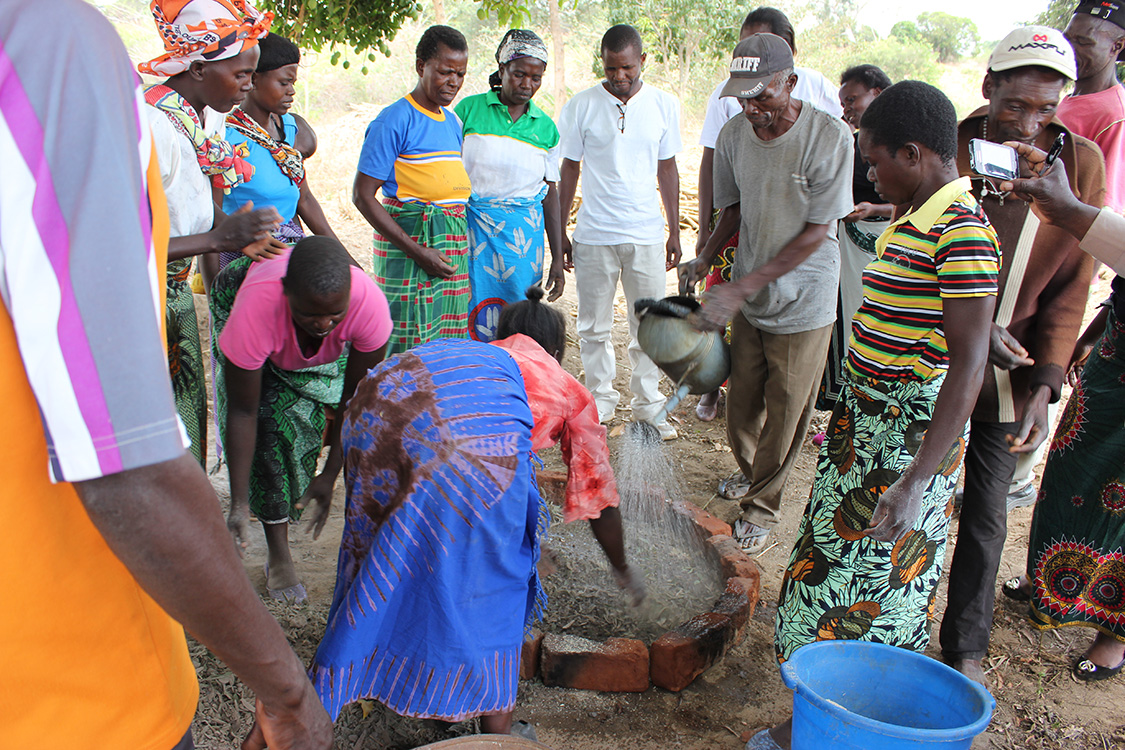New minor focuses on food systems' equity, sustainability
By Krisy Gashler

Starting this fall, students can choose a new minor in Community Food Systems, a multidisciplinary minor that explores the agricultural, ecological and ethical dimensions of food systems.
The minor also includes a supervised practicum with a community-based organization working to create food systems that are “just, equitable and environmentally sound.”
Scott Peters, professor of Development Sociology, said the minor has been a years-long process of discussion among faculty, staff and community partners, and was developed through the Food Dignity project, a 5-year, $5 million grant from the Agriculture and Food Research Initiative and support from a Cornell Engaged Curriculum development grant.
“Around the world, there’s just been this explosion of work on food issues,” Peters said, “and there are many ways people are naming this work, from food activism, to food justice, food sovereignty, food security. We are particularly interested in the work that includes issues of justice and sovereignty.
“Unlike some current offerings at Cornell, our central focus is not on agronomy, plant science or nutritional science,” he said. “We are looking more at the social, cultural and political issues that have to do with the work of building a food system that is more sustainable, more just, that contributes to issues related to equity and democracy.”
Rachel Bezner Kerr, Ph.D. ’06, associate professor of Development Sociology, said the minor is unique in several ways, including its multidisciplinary approach, the required practicum and especially the high level of involvement with community partners.
“We’re setting up an advisory board of the organizations we’re working with and they’ll help us shape how we construct the minor and particularly how the practicums work,” Bezner Kerr said. “We’ve thought a lot about how to make this a useful experience for the partner organizations as well as the students.”
Community partners are: Cornell Cooperative Extension of Tompkins County; Groundswell, an Ithaca-based nonprofit that offers training for beginning farmers; East NY Farms, a Brooklyn-based organization focused on food justice and sustainable agriculture; the Cornell Farmworker Program, which works to improve the lives of migrant farmworkers and their families; and the Soils, Food, and Healthy Communities project, which addresses food security and nutrition in Malawi.
“I think there is a lot of interest in the student body for engagement around agriculture and food, and this minor will be an opportunity for students to think about the food system holistically and the implications for marginalized communities and from multiple disciplinary perspectives,” Bezner Kerr said. “It will also enable them to get connected to people in the food system and to think about what it means to be a real partner; to listen and be humble and think about your role in relation to social movements and organizations trying to make a difference in these issues.”
As an example of how this process works, Bezner Kerr cited her work in Malawi.
“If you’re trying to address hunger, it may not be enough to just improve soil fertility, or grow more food,” she said. “If there’s gender inequality in the household, and women are expected to do most of the farm work as well as the household work, then growing more food may increase women’s workload and reduce the time that they can spend breastfeeding, looking after small children and cooking nutritious food for them. So addressing hunger may require addressing gender inequality at the household level. And teaching about nutritious foods in ways that are culturally appropriate.”
The minor requires an introductory course and three elective courses, each emphasizing ethical, ecological or agri-food system perspectives, along with a capstone course and the practicum.
“We want people to understand that there are a lot of social and cultural and political dimensions to changing the food system,” Peters said, “and we hope that students, through this minor, will have a much greater understanding of that.”
Krisy Gashler is a freelance writer for the College of Agriculture and Life Sciences.
Media Contact
Get Cornell news delivered right to your inbox.
Subscribe